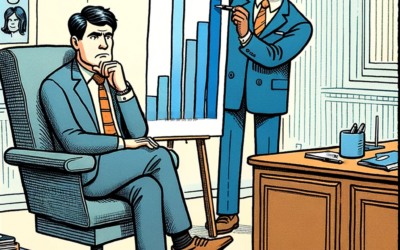
Ever wonder why great CEOs like Steve Jobs, Jack Welch, Eric Schmidt, and Bill Gates hire an executive coach? It’s usually not because their boards recommended it. In fact, 79 percent of the time, it is CEOs themselves who seek out coaching. But why do leaders, especially iconic ones, want coaching? It all goes back to what Alfred Adler shared perfectly decades ago, “All problems are interpersonal relationship problems.”
Why Hire Executive Coach as a CEO?
According to a 2019 Conference Board survey, the most common reasons CEOs hire an executive coach are leading teams and developing people; executive presence or influencing others; and emotional intelligence. All these reasons have to do with people. CEOs constantly deal with “people issues” because, as David Larcker, professor at Stanford Graduate Business school, said, “Conflict management is critical in the CEO role — just about anything that gets to the CEO’s desk has an element of pleasing someone and making someone else unhappy.”
But most CEOs aren’t trained in navigating interpersonal conflicts. In fact, many leaders find that on the way to the top, the things that got them there often prove to be barriers the further they climb. Quitting or leaving an organization rarely solves the problem; instead, the problem just leaves with the leader. This is why hire an executive coach!
Getting Honest Feedback From Your Coach
It’s hard for CEOs to improve their leadership because they rarely get candid feedback from their subordinates who fear possible retribution. As Caterina Bulgarella (PhD) writes, studies show that accruing power comes at the cost of disconnecting from others and losing the ability to take perspective; leaders in high positions are generally more insulated from contextual signals from their environment. Getting honest feedback about leadership’s behavior is critical because 33 percent of failed transformations happen due to leadership’s behaviors not algining with desired changes, according to Mckinsey. This is why hire an executive coach!
It’s no wonder leaders get stuck in their mental models and can’t make progress. It takes considerable effort to recognize when someone is operating from a different mental model than yours. It’s quite common, for instance, to use the same words when we mean fundamentally different things. We all inherit different definitions for the same words and bring them to our current workplace, but assume we’re all on the same page. Aligning on a clear nomenclature within a strategic planning session, for example, on what we mean by “goal,” “objective,” or “initiative” is critical. Leadership always involves other people, so miscommunications, logjams, and disagreements are inevitable. That is why it’s pertinent that leaders take perspective and step outside of their mental models.
Why Hire Executive Coach – Get You Unstuck
How do we become aware of our mental models? We need a trusted partner whom we can explore questions out loud in a safe context. This is difficult for CEOs who can’t be fully transparent with the people they manage. They could turn to their spouses, but their quality of their advice varies depending on their level of business expertise. This is just one reason why to hire executive coaches.
If you hire executive coaches they provide an honest, unbiased viewpoint to bounce ideas off, unlike a colleague. They also bring to the table a unique training in critical areas of leadership: psychology, philosophy, conflict management, group dynamics, interpersonal communication, team theory, and facilitation training. In addition to training, coaches possess a wealth of experience coaching similar clients, and unlike sporadic conversations with friends, they regularly hear stories from you at a regular clip of frequency and don’t need to waste time catching up.
Where coaches distinctly excel is in helping leaders work through their blindspots — a quality or behavior they exhibit that is well-known to others, but relatively unknown to them. Leaders, frankly, have risen to their leadership positions largely due to their ideas and beliefs. Once at the top, it’s hard for them to accept ideas that aren’t in keeping with their own. Thus it’s common for CEOs to come to us confused and angry due to hearing feedback from someone that they are, for instance, at times “demeaning to others.” This is why hire an executive coach!
Remove the Bias
A good coach helps leaders come to terms with their biases and blindspots without triggering their defenses. A great deal of our work is helping our clients overcoming decision biases — from memory biases to confidence biases — through a variety of tactics, including asking simple perspective-flipping questions, such as, “What if this other person is the hero in this story and not you? What would they say?”
There are an increasing number of empirical studies demonstrating the positive benefits to hire executive coaches. The Institute of Coaching reported that over 70 percent of individuals who receive coaching experienced improved work performance, better relationships, and more effective communication skills. Even more, 86 percent of companies believe that they have more than recouped the investment they made into coaching. And a research study found that leadership effectiveness ratings for senior leaders, as reported by direct reports, peers, and managers, increased by 60 percent after just six months of coaching. Coaching clearly pays dividends, this is why hire executive coach.
Our proprietary leadership model for executive coaching
At CO2 Partners, we help organizations scale by developing leaders. Our approach is bespoke, tailored to who you are and your goals; we’re not here to turn you into a duplicate version of Jack Welch or the latest CEO in the spotlight.
While our approach is customized, we have a systematic model of leadership: CO2 Ascent Leadership Framework. This framework is the result of a multi-year research and learning process involving experts, clients, colleagues, and mentors. It distills the essential attributes of successful leaders—those who achieve profound outcomes and inspire their teams, no matter how unusual or extreme the challenge.
The Ascent framework and its corresponding assessment is comprehensive and yet simple. It covers 74 elements within just six domains: Purpose, Culture, People, Execution, Systems Thinking and Strategic Thinking. Let’s be honest: There are countless different types of leadership and team models, with new ones churned out every year. The Ascent framework is meant to operate at the meta-level, enabling you to organize your thinking, step back and ask, “Okay, where does this latest leadership model fit within the Ascent leadership framework?” By working with a CO2 coach, you can discover which elements within the six interconnecting leadership domains are most relevant to your leadership ascent and to discern the next move for your journey. This is why hire executive coach.
Why Hire Executive Coaches? To Get Results!
Over the past few decades, we’ve coached top leaders from startups to Fortune 500 companies across a diverse array of industries. 82 percent of our clients say that we effectively helped them achieve our goals, and 70 percent say they are extremely likely to refer us to friends or colleagues.
Take it from Bill Bisanz, the CEO of Real Estate Equities, an apartment ownership group, who shared how hiring an executive coach helped paved the way for business growth.
In the beginning, Gary helped with internal politics about five years ago. It helped us set the table on the staff front and create a platform that would allow us to grow. I also work with Gary in the strategic planning process on an annual basis, which has been catalytic. We’re now building apartment buildings now ($25-50 million transactions), which are 5-10 times the size of transactions from before. It does pay dividends to stay the course.
Listen to Stuart Sneer, a second-generation banker and chairman of the board at United Prairie, talk about how coaching has elevated his executive presence and self-awareness:
I have more self-confidence particularly in an area I struggle with, confrontation. It’s not an area I want to play in very often, but when I do, I feel more confident about how I will show up. I’m more aware of trigger points for an outburst — and instead of speaking in those moments, I’ll try to think my way through them instead.
Read this interview with Aaron Hobbs, president of RISE (Responsible Industry for a Sound Environment), a trade association in Washington DC.
Working with Gary has allowed me to clarify my thinking and become more purposeful. I’m not just doing things by default. I ask more questions—of myself and others. Why do we do this? Why do I do that? I have greater clarity about why I do things—in my interactions, my engagement, my leadership.
Perhaps the statistic we’re most proud of is that 94% of our clients describe our coaching engagements as “transformational.”
What are you looking to transform? Whether it’s your executive team, the growth of your business, your ability to lead at the next level, or steer your company through turbulent, complex crises, we’ve been there and we’ve helped your peers solve similar challenges. We are known for asking tough questions in a safe, positive environment to help you see golden opportunities from a different perspective. We are here to act as your partner in your company’s growth and your leadership journey.
Schedule a consultation today with one of our experienced executive coaches to get your journey started!



